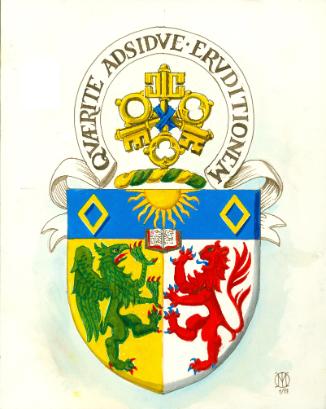Course type
Bachelor of Arts (International Honours degree)
Course duration
Four years full time
- Start date: 10 September 2018
- End date: 30 June 2022
Entry requirements
The following entry requirements are for students applying to St Andrews.
| SQA Highers |
AAAB |
|---|
| GCE A-Levels |
AAA |
|---|
| IB points |
38 |
|---|
How to apply
You can only apply for the programme through one institution, and each institution will honour the admissions decisions of the other. You must specify which subject area you wish to apply for on your application form.
If you wish to begin your studies at the University of St Andrews, you can apply through the St Andrews direct application form or the Common Application form.
If you wish to begin your study at the College of William & Mary, you should apply through the William & Mary Common Application form.
International applicants
If English is not your first language you will need an overall IELTS score of 7.0, with a minimum score of 6.5 in each component (Reading, Writing, Listening and Speaking), or an equivalent English Language qualification.
Do I need to have studied this subject before?
No previous knowledge of this subject is required.
Faculty entry requirements
You must also meet the Faculty of Arts minimum qualifications. These vary depending on which qualifications you hold.
SQA qualifications
SQA National 5 (B or above) or equivalent in English and one SQA National 5 (B or above) from the following:
- Biology
- Chemistry
- Computing Science or equivalent
- Geography
- Lifeskills Mathematics (A grade)
- Mathematics
- Physics
- Psychology.
GCSE qualifications
GCSE (B or above) in English, English Language or English Literature, and one GCSE (B or above) from the following:
- Biology
- Chemistry
- Computing Science or equivalent
- Geography
- Geology
- Mathematics
- Physics
- Psychology.
Other qualifications
Passes in other examinations at equivalent levels and subjects may be accepted by the Dean of the Faculty. More information on how to apply via other entry routes or accreditation of prior learning and experience can be found on the University’s entry requirements webpage.
Find out more about Faculty of Arts entry requirements.
Timetables
St Andrews students must meet with their Adviser of Studies at the beginning of Semester 1 in September to complete advising – a compulsory part of the matriculation process. After module choices have been decided, a timetable will be allocated indicating the dates and times of classes.
